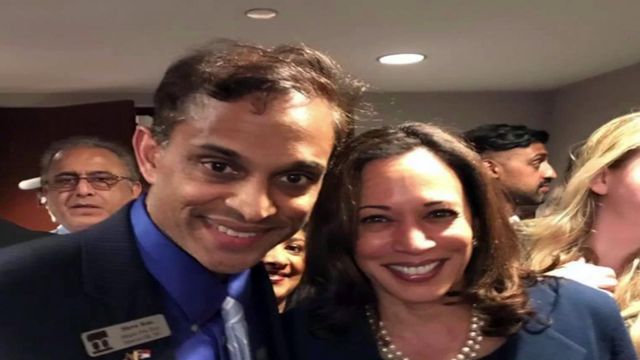'Feeling seen': Indian-American community empowered by Harris' VP run
The selection of U.S. Sen. Kamala Harris as the Democratic vice presidential candidate marked a historic milestone, as she was the first woman of color - and only the fourth woman overall - to be part of a major political party's presidential ticket.
Posted — UpdatedFor the Triangle's Indian-American community, it means more doors are opening to future possibilities.
"During my childhood, I just never really believed that someone of color could be elected president or vice president," Morrisville Town Councilman Steve Rao said.
Rao, an Indian-American and the longest-serving member of the council, said Harris’ identity doesn’t define her politics, but her representation inspires a more inclusive country.
“For the Indian-American community, we’ve come so far in a relatively short time," he said. "But I think now you’re going to see an acceleration in political engagement."
That engagement, Rao said, will break barriers for young people already living through a pivotal time of change.
"The first thing I thought about was my daughter, for [her and others] to look at the TV and say, 'That can be me,'" he said.
"The fact that now you can go out to vote for a presidential nominee and see some part of you represented on there, that doesn’t count for nothing,” said Rindha Sudhini, a senior at the North Carolina School of Science and Math in Durham. "It meant a lot to show that, for once, we’re not just a side character or the nerd in the TV show, but we’re the VP nominee of a major party."
Sudhini has aspirations of studying public policy in the near future. She’s filled with pride to see someone who looks like her running for vice president.
"It just goes to show that our nation’s legislation doesn’t have to be controlled by just one type of person, but it can be for everybody," she said. "There just has to be someone willing to take that step first."
That step, Rao said, can ultimately welcome more acceptance for different ethnic groups and support disenfranchised communities.
"Now, I think young kids are going to say, 'God, I want to be governor. I want to be congressman. I want to be president,'" he said. "If they have the right education, the right work ethic, nothing can stop them."
Related Topics
• Credits
Copyright 2024 by Capitol Broadcasting Company. All rights reserved. This material may not be published, broadcast, rewritten or redistributed.






